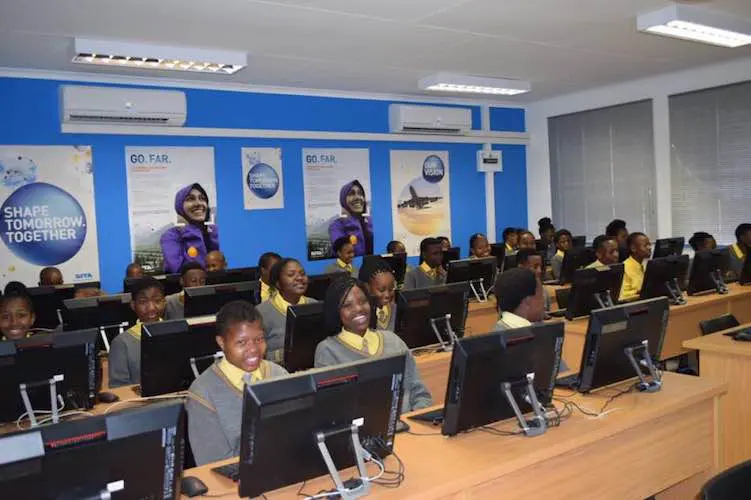On Mandela Day in 2016 Namedi Secondary School in Diepkloof, Soweto received a computer lab from the Melisizwe Computer Lab Project giving them access to the subject Computer Application Technology (CAT). The excitement at school earlier this year as a group of grade 10 learners rushed to the newly built computer lab for their CAT was palatable. To them, the class is an adventure; they look forward to exploring the unfamiliar territory of computer technology.

Amongst the group is Mbali Ramasodi, a soft-spoken young girl also looking forward to working and learning new things on the computer, although she admits it has been difficult for her. Ramasodi had her very first interaction with a computer at the beginning of the year when she started CAT.
“I never had access to a computer before and therefore I have been struggling a little in the CAT classes, particularly in typing but I enjoy the classes. Now I know about computer hardware, software and I am working on Microsoft word and excel,” Ramasodi says
The CAT classes are an hour long, four times a week and a wide array of skills are developed including Word, Excel, Access, Explorer, Outlook and Power Point and basic HTML (webpage).
This year, the Melisizwe Computer Lab Project hopes to increase the amount of schools who will receive computer labs to 67 schools for 67 minutes on Mandela Day. “With the assistance of corporate South Africa, it can be done,” says Candice Kern-Thomas director at SA Consulting Projects who manages the project.
“Learners who study CAT will have a competitive advantage because computers are a fundamental element in the world today and an understanding of them is essential. They will also have a higher chance of employment immediately after completing Matric and it help them navigate through tertiary education easier,” says Kern-Thomas
CAT teacher George Shitlelana concurs and says that the school has started introducing additional CAT classes over weekends to cope with the demand. “Most of them have no previous computer experience and some learners were literally shaking when they had to work on the computer for the first time but they are slowly learning,” says Shitlelana.
According to the policy brief published by the Africa Institute of South Africa in 2012, only 26, 5% of schools nationwide were using computers for teaching and learning, leaving a significant number of learners without access to computers. This number has not improved much in the last five years despite efforts by government to improve access in schools. One would think that a school situated in the heart of Johannesburg in the township of Diepkloof Soweto would have access to computers however this is far from the truth.
Namedi Secondary school is one of the underprivileged schools that have received a fully functional computer lab through the Melisizwe Schools Computer Lab Project which aims to help learners access CAT and Information Technology as part of their curriculum to improve their employability.
The Melisizwe Computer Lab Project was launched in 2012 and a total of eight schools have benefited from the project to date.
“Learners who study CAT will have a competitive advantage because computers are a fundamental element in the world today and an understanding of them is essential. They will also have a higher chance of employment immediately after completing Matric and it help them navigate through tertiary education easier,” says Kern-Thomas
